Django CRUD (Create Read Update Delete) ExampleTo create a Django application that performs CRUD operations, follow the following steps. 1. Create a Project  2. Create an App  3. Project Structure Initially, our project looks like this: 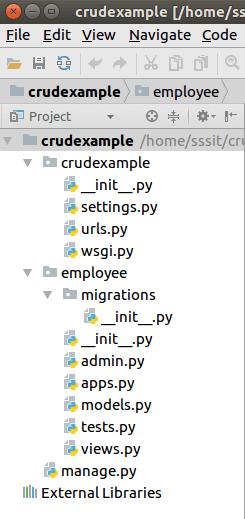 4. Database Setup Create a database djangodb in mysql, and configure into the settings.py file of django project. See the example. // settings.py 5. Create a Model Put the following code into models.py file. // models.py 6. Create a ModelForm // forms.py 7. Create View Functions // views.py 8. Provide Routing Provide URL patterns to map with views function. // urls.py 9. Organize Templates Create a templates folder inside the employee app and create three (index, edit, show) html files inside the directory. The code for each is given below. // index.html // show.html // edit.html 10. Static Files Handling Create a folder static/css inside the employee app and put a css inside it. Download the css file here Click Here. 11. Project Structure 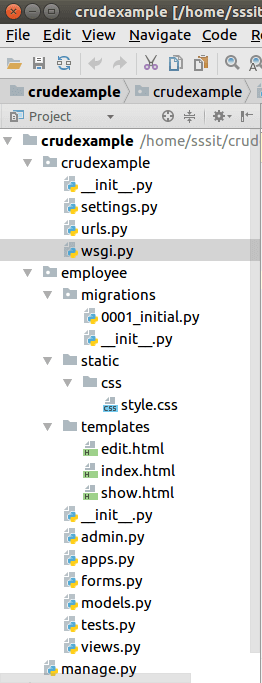 12. Create Migrations Create migrations for the created model employee, use the following command.  After migrations, execute one more command to reflect the migration into the database. But before it, mention name of app (employee) in INSTALLED_APPS of settings.py file. // settings.py Run the command to migrate the migrations. 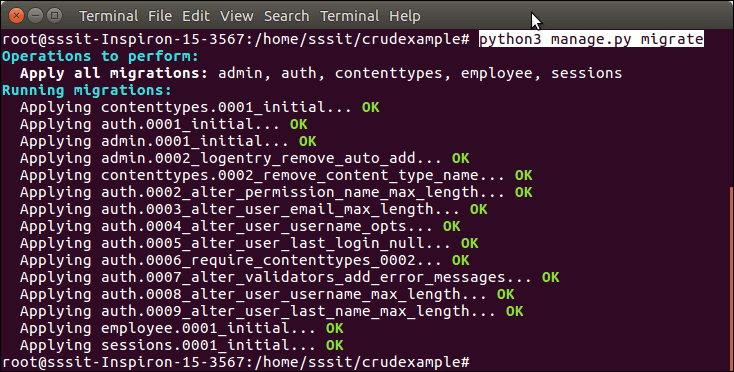 Now, our application has successfully connected and created tables in database. It creates 10 default tables for handling project (session, authentication etc) and one table of our model that we created. See list of tables created after migrate command. 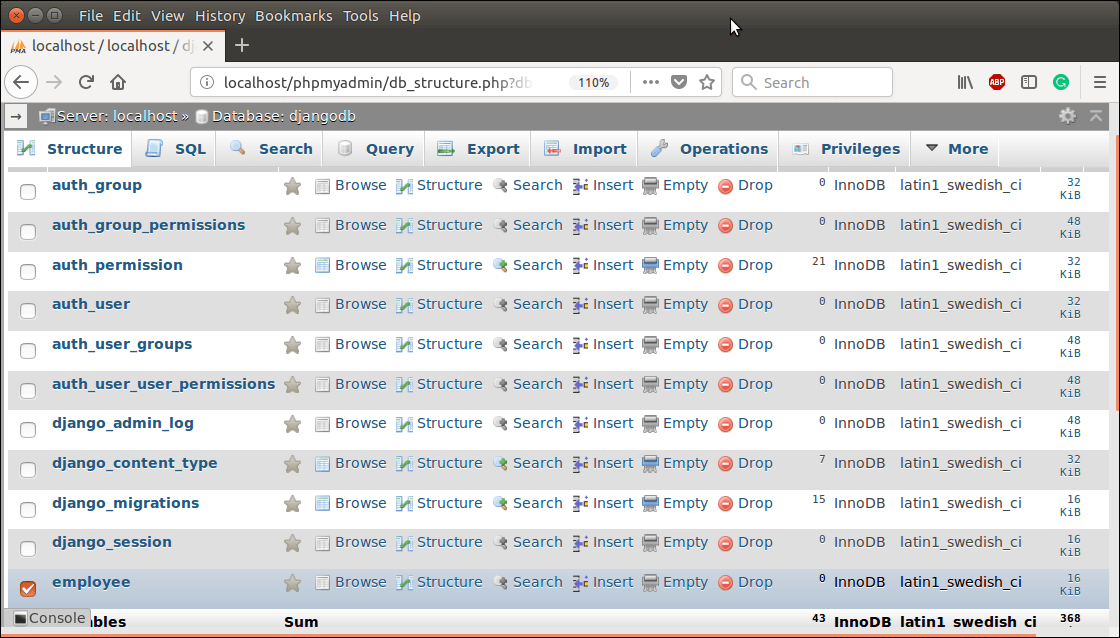 Run ServerTo run server use the following command. 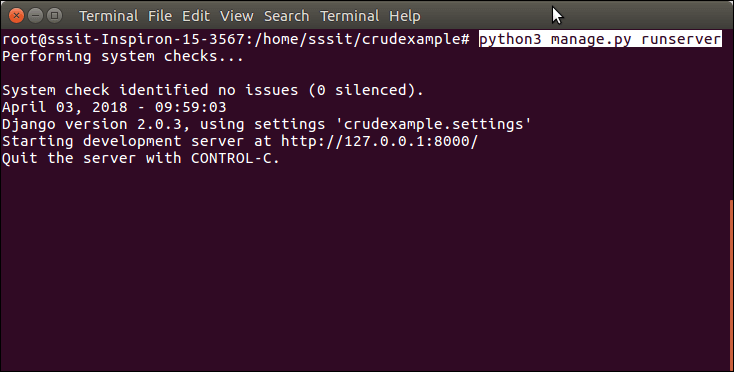 Access to the BrowserAccess the application by entering localhost:8000/show, it will show all the available employee records. Initially, there is no record. So, it shows no record message. 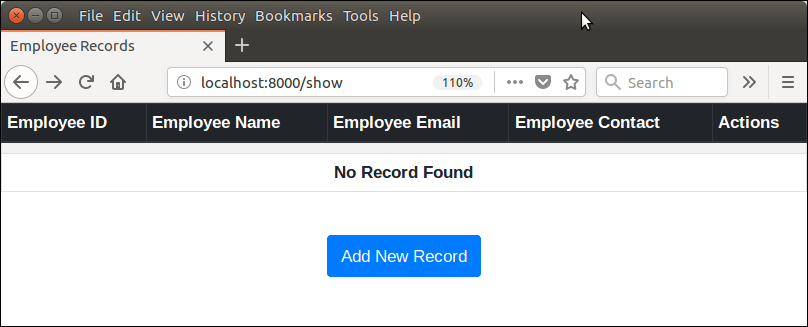 Adding RecordClick on the Add New Record button and fill the details. See the example. 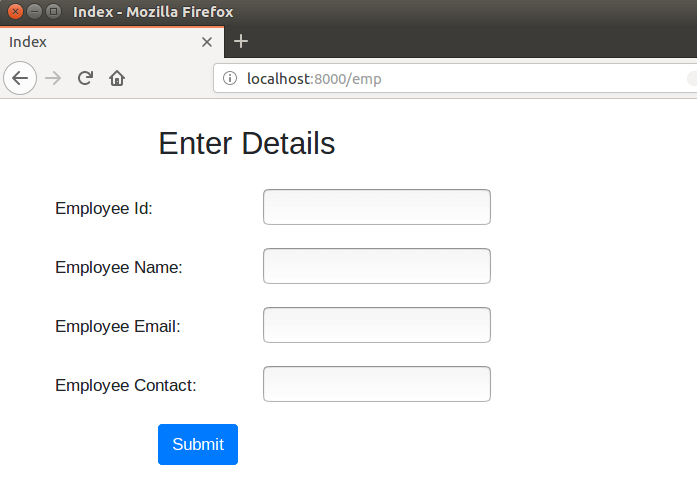 Filling the details. 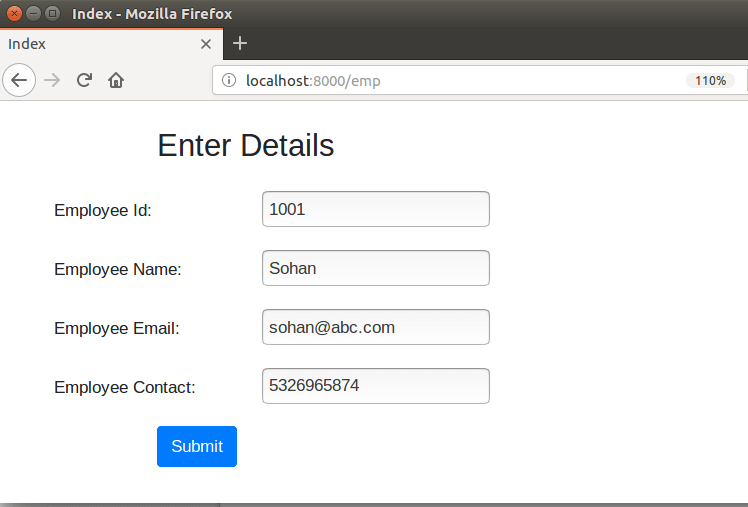 Submit the record and see, after submitting it shows the saved record. 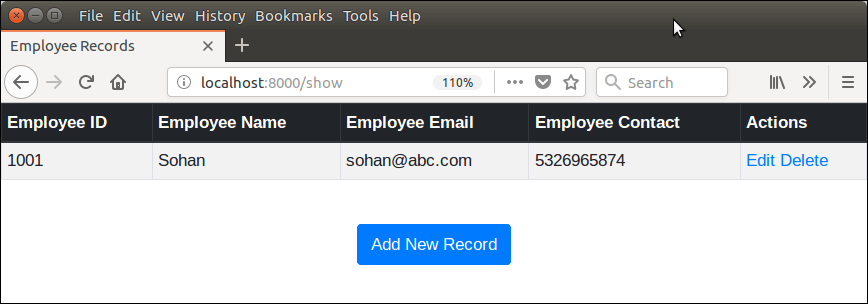 This section also allows, update and delete records from the actions column. After saving couple of records, now we have following records. 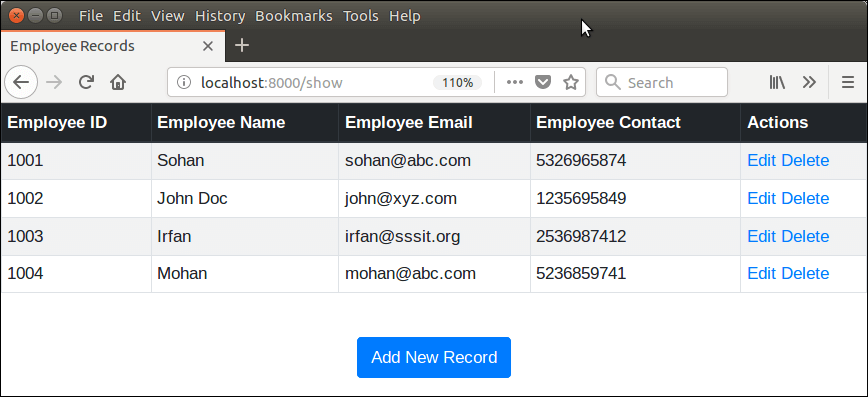 Update RecordLets update the record of Mohan by clicking on edit button. It will display record of Mohan in edit mode. 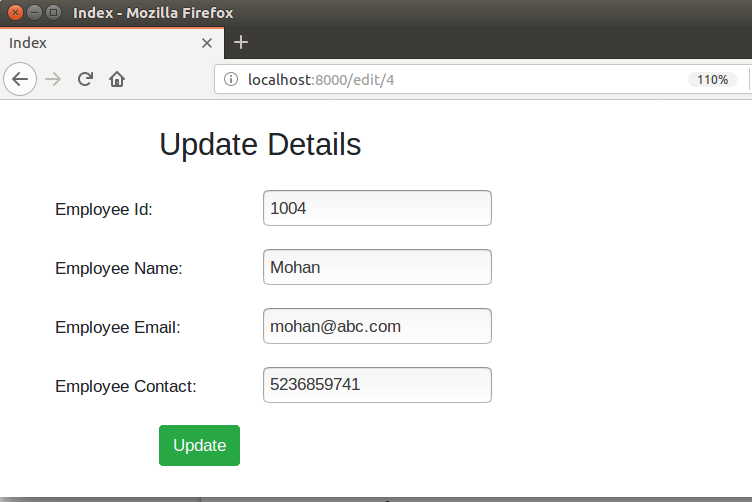 Lets, suppose I update mohan to mohan kumar then click on the update button. It updates the record immediately. See the example. 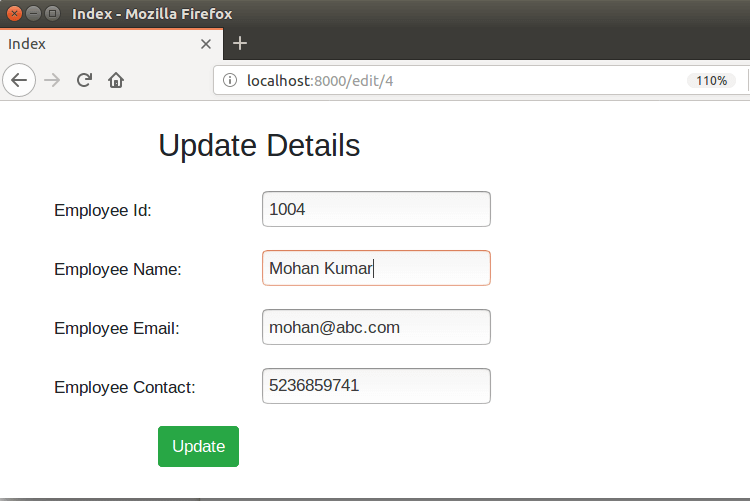 Click on update button and it redirects to the following page. See name is updated. 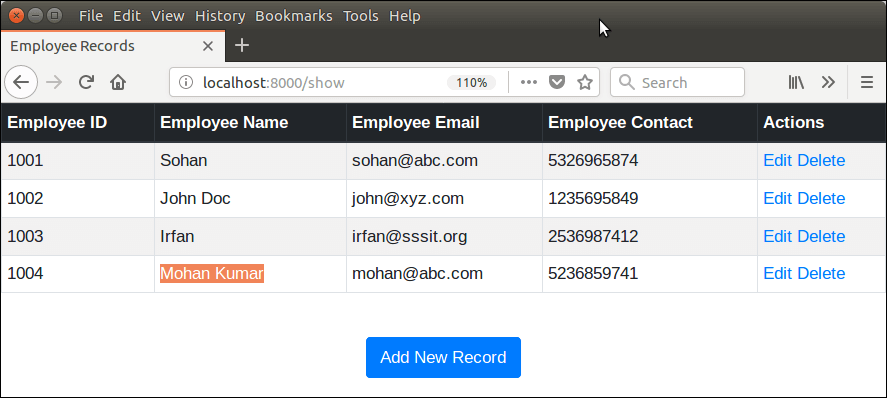 Same like, we can delete records too, by clicking the delete link. Delete RecordSuppose, I want to delete Sohan, it can be done easily by clicking the delete button. See the example. 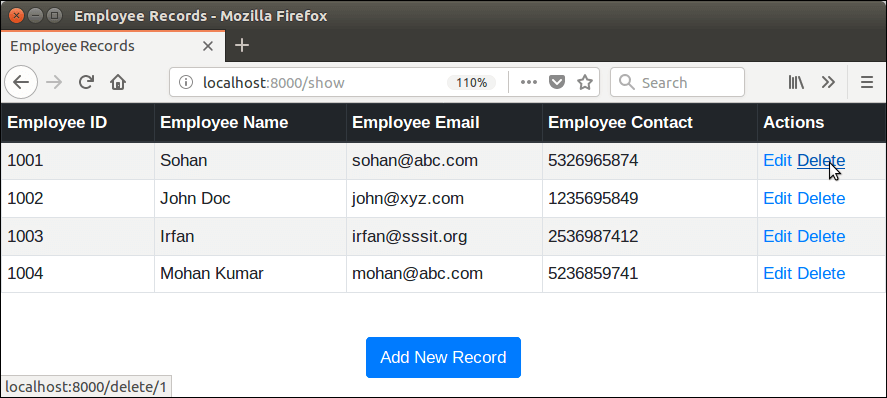 After deleting, we left with the following records. 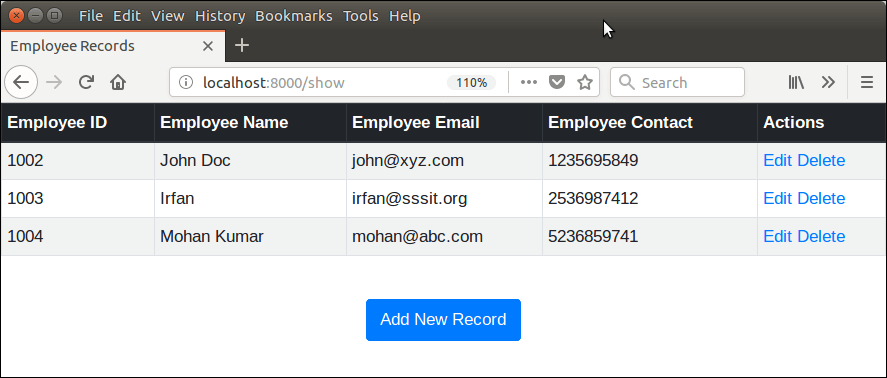 Well, we have successfully created a CRUD application using Django. Next Topic# |